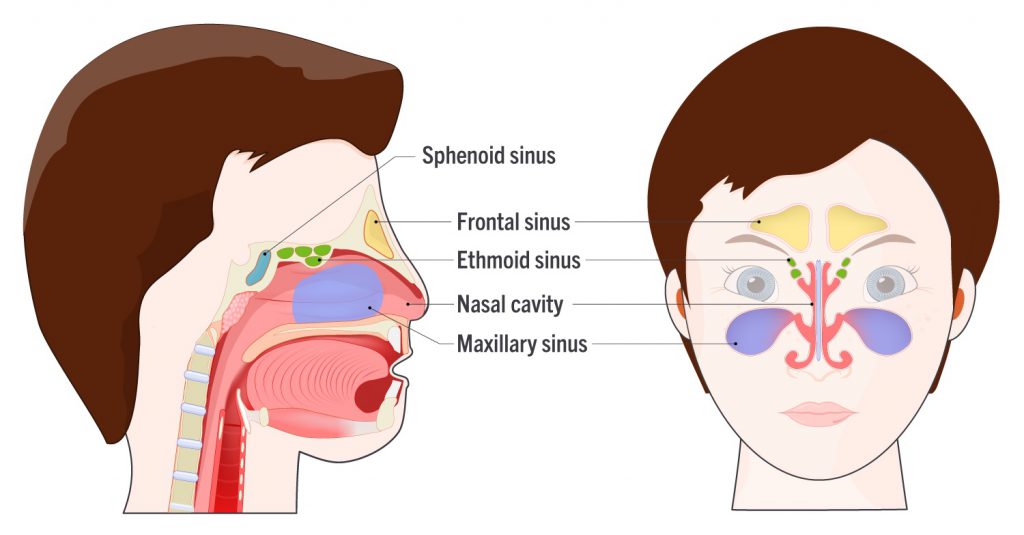When it comes to living a happy and healthy life while enjoying the very best of the Lowcountry, allergic sinusitis can be a painful and disruptive illness that seems to constantly get in the way. In fact, your sinuses affect each breath that you take. Our team is here to help you not only find relief from sinusitis but to find the root cause of your symptoms so you can breathe better, feel better and live better.
It’s important to understand the body’s sinuses when discussing sinusitis. The sinuses are air-filled hollow areas that are located around the nose throughout the cheeks, the forehead, between the eyes and behind the nose.
What is sinusitis?
Sinusitis is inflammation (swelling) of the mucosal tissues that line the sinus cavities and can cause increased mucus production and block normal drainage.

What causes sinusitis?
Acute sinusitis is caused by viruses more than 90 percent of the time, but can also be caused by bacterial infections. If you have allergies, you are more susceptible to getting sinusitis when you catch a cold. If you have symptoms for longer than 10-14 days, you should be evaluated and possibly treated for sinusitis.
Allergic conditions can result in the swelling of your nasal passages which prevents the normal drainage of mucus, viruses and bacteria. These trapped viruses and bacteria contribute to the symptoms of facial pain, congestion, pressure and increased discharge. Additionally, cilia may be damaged as a result of illness or exposure to toxic substances, further preventing sinus drainage. Some people have defects such as a deviated septum, growths in the sinus or nasal cavities called polyps, small sinus openings or cilia damaged by genetic alterations that increase the likelihood of sinusitis.
Allergies are often associated with chronic sinusitis so it is important to be tested for the presence of allergies that could be making symptoms worse.
What are the symptoms of sinusitis?
- Pressure or pain over the sinuses
- Sinus headaches
- Sinus congestion or stuffy nose
- Post-nasal drip
- Cough
- Thick nasal drainage that may be yellow or green
- Headache
- Fatigue
- Fever
- Pain in upper teeth
- Sore throat
- Decreased sense of smell
- Bad breath
How is sinusitis diagnosed?
Given that individuals with allergies and asthma are more likely to suffer from sinus issues, a board-certified allergist can aim to determine the cause of sinusitis through the review of a detailed medical history, in-office examination and identifying what additional tests may be needed. A CT scan of the sinuses is sometimes required when symptoms do not improve as expected or the patient has chronic sinusitis. Your allergist may also recommend allergy testing through a skin prick test to help determine if allergies are part of the problem.
For a small number of patients who have recurrent or persistent sinus symptoms, surgery may be needed to help fix anatomic defects that are contributing to sinus infections. If drug therapies and allergy injections have failed, your board-certified allergist will review options with you and advise if surgery is necessary.
Schedule an Appointment
Don’t let sinusitis interfere with your life, let us help you get back to enjoying the things you love and make an appointment today!
